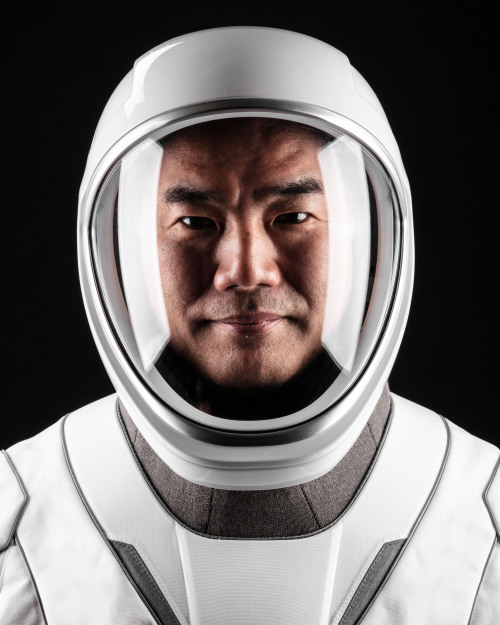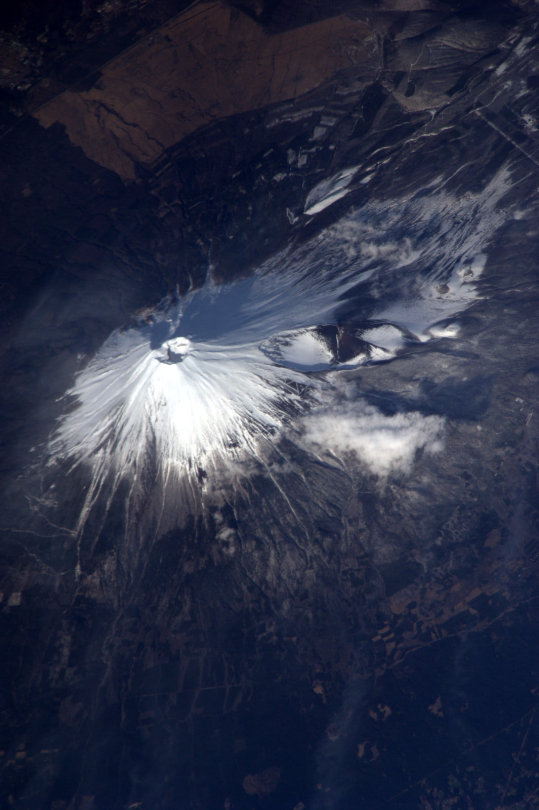Your gateway to endless inspiration
JAXA - Blog Posts

NASA Spotlight: Astronaut Soichi Noguchi
Soichi Noguchi was selected as an astronaut with the Japan Aerospace Exploration Agency in 1996. A native of Yokohama, Kanagawa, he is currently a mission specialist for NASA’s SpaceX Crew-1 launch taking flight to the International Space Station on Nov. 14. Soichi will be the first international crewmember on Crew Dragon and the first international partner astronaut to fly aboard three types of orbital spacecraft – the U.S. space shuttle, the Russian Soyuz, and now the SpaceX Crew Dragon! Talk about impressive. He received a B.S. in Aeronautical Engineering in 1989, master's degree in Aeronautical Engineering in 1991, Doctor of Philosophy in Advanced Interdisciplinary Studies in 2020, all from the University of Tokyo.
Soichi took time from preparing for his historic mission to answer questions about his life and career:
You recently earned a doctorate in philosophy. What made you do it?
After my second flight, I started this research about your sensory system in zero gravity. I used a my own personal video, which I took during my last two flights at the International Space Station. I had a lot of interesting discussions amongst young professionals and students at the University of Tokyo about the research. It was a fun experience – but I would not do it again!
Space is a risky business. Why do it?
Space IS definitely a risky business. But the reward is higher than the risk so that’s why we take it.
Do you have a message for boys and girls in Japan who are interested in science and engineering?
Three words: Space. Is. Waiting.

Aside from mission objectives and tasks, what’s a personal goal for this mission?
We have a lot of interesting missions to do, but my personal goal is to return home with lots of fun stories.

What was it like to get the phone call to become an astronaut?
It was 25 years ago, but I still remember the voice vividly. I got a call from Dr. Mamoru Mohri, the very first JAXA astronaut, and he said “Welcome to the Astronaut Corps.” When I got the call to be part of the Crew-1 mission, I was a lot less nervous than when I was assigned to my first mission, but the excitement remains the same.
Can you describe your crew mate Mike Hopkins in one sentence?
He is a natural leader that takes care of the team really well, and he’s fun to play around with.

Star Trek or Star Wars?
Star Wars… just because!

Can you share your favorite photo or video that you took in space?
My favorite photo is Mount Fuji because I see the mountain almost every day when I was a child. It’s definitely breathtaking to see Mount Fuji from space.

What personal items did you decide to pack for launch and why?
I have lots of family photos, and I would put it inside my sleep station. Definitely one of the most challenging things about spaceflight is not experiencing zero gravity, not the rocket, but time away from family.
How would you describe spacewalking outside the space station?
It’s an excursion. The view of the Earth is just breathtaking because you are just one glass away from the vacuum of space. There’s nothing between you and Earth.

What are you most excited about for the future of human space exploration?
I would say I’m most excited for interplanetary travel to become more common so that the school kids can go to Mars on their field trip.
What would you say to someone looking to follow in your footsteps?
Don’t worry, be happy!
How has spaceflight evolved since your first launch and stay aboard the International Space Station in 2005?
This is definitely an exciting moment. We’re starting to see more players in the game. SpaceX is the frontrunner, but soon we’ll see Boeing, Sierra Nevada and Axiom. So the International Space Station will soon have more players involved, and it will be a lot more fun!
Thank you for your time, Soichi, and good luck on your historic mission! Get to know a bit more about Soichi and his NASA astronaut crew mates Victor Glover, Michael Hopkins, and Shannon Walker in the video above.
Watch LIVE launch coverage beginning at 3:30 p.m. EST on Nov. 14 HERE.
Make sure to follow us on Tumblr for your regular dose of space: http://nasa.tumblr.com
Keeping an Eye on Hurricane Florence
What do hurricanes look like from space? It depends on how you look! We have satellites, cameras and instruments all working together to give us the big picture of storms like Florence.
As the International Space Station passed over Hurricane Florence, astronauts and cameras on board got a look down into the hurricane’s eye.
Our Global Precipitation Measurement (GPM) mission sees storms all around the planet by measuring rainfall. These measurements come from a constellation of satellites working together, including some from our partner organizations like the National Oceanic and Atmospheric Administration (NOAA) and the Japanese Aerospace Exploration Agency (JAXA).

On Sept. 7, our GPM core observatory satellite flew over Florence, capturing a 3D image as the storm’s clouds started to break apart before reforming.

Other NOAA satellites, like GOES, gather high-resolution, detailed views of hurricanes, letting us peek into the eye of the storm.

Zooming out a bit, the Suomi-NPP satellite helps us track Hurricane Florence, and the following tropical storms, as they move closer to landfall or dissipate over the ocean.

From farther away (a million miles from Earth!), the EPIC instrument on NOAA’s DSCOVR satellite captured images of all three of these storms as they moved closer to North America.

We use our space-based and airborne instruments to provide innovative data on hurricanes to advance scientists’ understanding of these storms. You can follow our latest views of Hurricane Florence here and get the latest forecast from NOAA’s National Hurricane Center here.